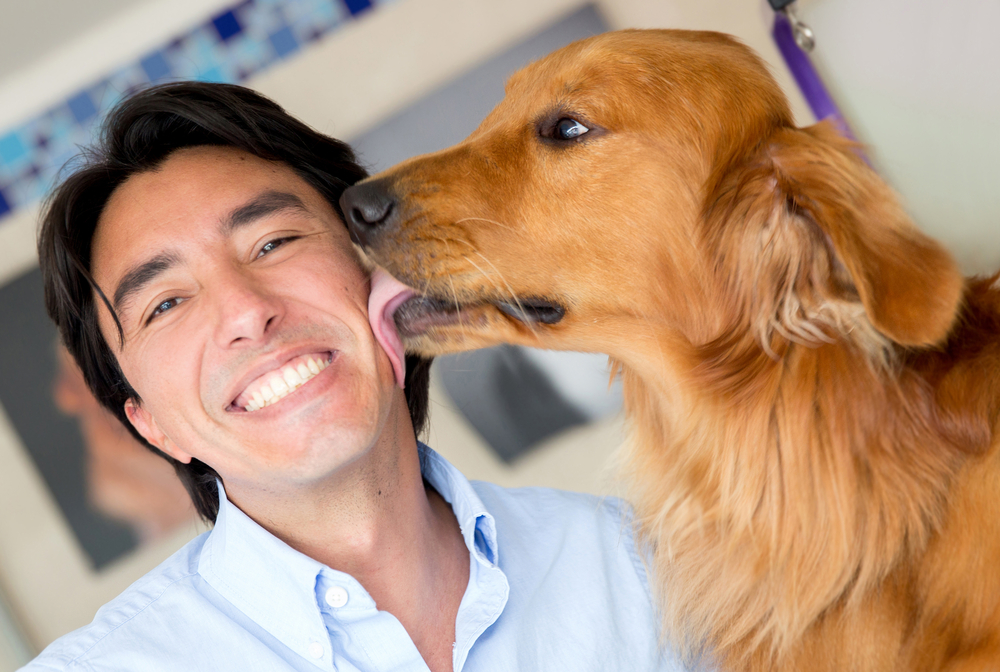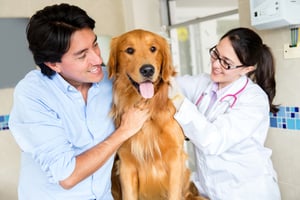
In the veterinary industry, reputation is a cornerstone of success. A crisis, whether it be a mismanaged case, negative online reviews, or a public relations mishap, can significantly impact a veterinary practice's standing in the community. Managing reputational risks during such times is critical to maintaining trust and loyalty among clients and ensuring the practice's resilience. This article explores key strategies for managing reputational risks in veterinary practices during a crisis, focusing on client relations, communication strategies, team coordination, social media management, and legal implications.

Client Relations
The bond between veterinarians and pet owners is built on trust, which can be tested during a crisis. It's essential to maintain open, honest, and empathetic communication with clients. Proactive conversations about the cost of services, payment options, and treatment outcomes are crucial. Transparency is key; if a mistake occurs, it's better to acknowledge it, apologize, and outline steps to prevent future occurrences. This approach can mitigate damage to the practice's reputation and maintain the integrity of client relationships.
Communication Strategies
Effective communication is the lifeline of crisis management. It's important to have a crisis communication plan in place that outlines how to deliver messages to various stakeholders, including clients, staff, and the media. The plan should identify spokespeople, key messages, and channels for communication. During a crisis, messages should be consistent, accurate, and timely, ensuring that all parties receive the same information to avoid confusion and misinformation.
Team Coordination
A united front is essential when managing a crisis. All team members should be briefed on the situation and the practice's response plan. Coordination ensures that everyone from the receptionist to the practice manager delivers consistent information to clients and the public. Regular team meetings can help to address concerns, share updates, and reinforce the practice's commitment to resolving the crisis.
Social Media Management
Social media is a double-edged sword during a crisis. It can be a platform for rumors and negative reviews to spread quickly, but it also offers an opportunity to control the narrative and demonstrate responsiveness. Veterinary practices should actively monitor their social media channels and respond to concerns with professionalism and empathy. Engaging content that educates clients about pet health and showcases the practice's commitment to animal care can help to reinforce a positive image.

Legal Implications
A crisis can have legal ramifications for a veterinary practice. It's important to understand the potential legal consequences of any situation and to consult with legal counsel when necessary. Documentation of all client interactions, treatment plans, and outcomes is crucial for legal protection. Additionally, practices should be aware of the legal aspects of social media use, including copyright laws and the importance of not disclosing confidential information online.
Conclusion
Managing reputational risks during a crisis requires a multifaceted approach that prioritizes transparency, communication, and legal prudence. By focusing on strong client relations, strategic communication, team coordination, effective social media management, and understanding legal implications, veterinary practices can navigate crises with confidence. The goal is not only to mitigate immediate damage but also to emerge from the crisis with a reputation for professionalism, compassion, and resilience.
Frequently Asked Questions
Q: What are reputational risks in veterinary practices?
A: Reputational risks in veterinary practices include data breaches, client dissatisfaction, lack of transparency, public relations missteps, and regulatory compliance issues.
Q: How can veterinary practices maintain trust with clients during a crisis?
A: Veterinary practices can maintain trust by prioritizing open, honest, and empathetic communication, addressing mistakes transparently, and outlining steps to prevent future occurrences.
Q: What steps can veterinary practices take to ensure compliance with animal welfare regulations?
A: Veterinary practices can ensure compliance by adhering to federal, state, and local laws, understanding ethical rules of conduct, and following regulations such as those outlined in the Animal Welfare Act (AWA) and the Animal Care Bluebook.
Q: How important is client education in mitigating reputational risks related to animal welfare?
A: Client education is crucial in building trust and understanding between clients and veterinary staff, as it helps clients understand preventive measures and the importance of regular veterinary care.
Q: Why is effective communication essential during a crisis in a veterinary practice?
A: Effective communication is essential to deliver consistent, accurate, and timely messages to various stakeholders, avoiding confusion and misinformation during a crisis.
Q: How can veterinary practices ensure team coordination during a crisis?
A: Veterinary practices can ensure team coordination by briefing all team members on the situation and response plan, holding regular team meetings to address concerns and share updates, and reinforcing the practice's commitment to resolving the crisis.
Q: What strategies should veterinary practices employ for social media management during a crisis?
A: Veterinary practices should actively monitor social media channels, respond professionally and empathetically to concerns, and share engaging content that educates clients about pet health and showcases the practice's commitment to animal care.
Q: What legal implications might arise for veterinary practices during a crisis?
A: Legal implications for veterinary practices during a crisis include potential consequences of the situation, the importance of documentation for legal protection, and awareness of legal aspects of social media use, such as copyright laws and confidentiality.
Q: How can veterinary practices adapt their communication strategies during a crisis?
A: Veterinary practices can adapt communication strategies by implementing a crisis communication plan, identifying spokespeople, key messages, and communication channels, and ensuring consistency, accuracy, and timeliness in messaging.
Q: What are the benefits of investing in staff training and professional development for veterinary practices?
A: Investing in staff training and professional development improves communication skills, empathy, and understanding of animal welfare issues, creating a more compassionate and effective veterinary team.
At Dental & Medical Counsel, we've been instrumental in realizing the practice goals of countless veterinarians. Whether you're looking to purchase, launch, or sell a veterinary practice, our expertise is your guide. Beyond the initial stages, we're committed to ensuring your veterinary practice remains legally compliant.
We provide comprehensive support, including employment law protections, veterinary contract reviews, and assistance with veterinary employment agreements. Additionally, we specialize in incorporating veterinary practices and securing trademarks. And for long-term planning, our services extend to helping veterinarians with succession and estate planning. Trust us to be your partner in every step of your veterinary practice journey.
.jpg?width=300&height=396&name=Ali%20Website%201_edited%20(1).jpg)
About Ali Oromchian, Esq.
Your Veterinary Lawyer
Ali Oromchian, JD, LL.M., is a leading legal authority in dental law and the founding attorney of Dental & Medical Counsel, PC, with over two decades of experience. His deep connection to dentistry comes from his wife's nearly two-decade-long career as a pediatric dentist.
This personal insight fuels his dedication to empowering dentists to navigate their legal challenges and achieve their practice goals. In doing so, Ali has helped thousands of doctors open their practices while maintaining legal compliance.
Ali is frequently quoted and contributes articles to dental publications, including the California Dental Society, Progressive Dentist, Progressive Orthodontists, Dentistry Today, Dentaltown, and The New Dentist magazines, further showcasing his commitment to the dental community.

Stay updated with industry news!
1904 Olympic Blvd, Suite 240
Walnut Creek, CA 94596
Phone: 925-999-8200
Fax: 925-884-1725
frontdesk@dmcounsel.com
| Monday | 8:00AM - 6:00PM |
| Tuesday | 8:00AM - 6:00PM |
| Wednesday | 8:00AM - 6:00PM |
| Thursday | 8:00AM - 6:00PM |
| Friday | 8:00AM - 6:00PM |
| Saturday | Closed |
| Sunday | Closed |